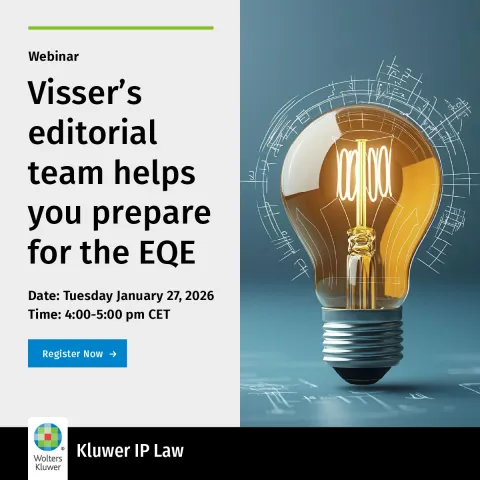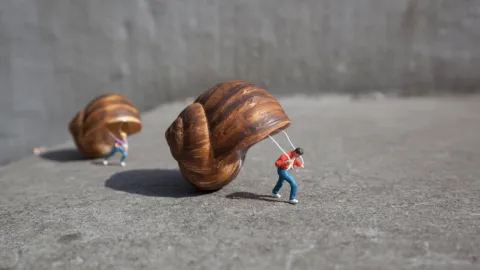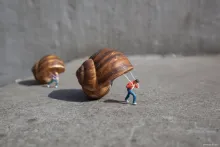T 0969/14 and late-filed submissions in EPO oppositions
October 22, 2018
T0969/14 is the latest in a long line of decisions which make it clear that the EPO Boards of appeal will not accept late filed requests which could have been filed in first instance proceedings, whether or not the submission of such requests might be perceived as a procedural abuse.
One of the consequences of decisions like this is a proliferation of auxiliary requests in first and second instance opposition proceedings. This, in turn, is being used by patentees to justify certain procedurally abusive behaviours in oral proceedings which are disadvantageous to opponents.
How has this has come about, and what can the EPO do to redress the balance?
The Law and the Rules of Procedure of the Boards of Appeal
The EPC and the Implementing Regulations do not contain explicit provisions concerning the admissibility of amendments in appeal proceedings. Therefore, appellants are not entitled, as a matter of right, to present amendments of their own volition at the appeal stage, but as a matter of discretion to be exercised by the board.
Article 12(4) RPBA gives the Board of Appeal the discretion over whether or not to admit requests which could have been, but were not, presented at first instance:
"Without prejudice to the power of the Board to hold inadmissible facts, evidence or requests which could have been presented or were not admitted in the first instance proceedings, everything presented by the parties under (1) shall be taken into account by the Board if and to the extent it relates to the case under appeal and meets the requirements in (2)."
When exercising its discretion, the Board must take due account of the judicial nature of the appeal procedure and the interests of the parties concerned. Admission of a new request into the proceedings hinges on the question whether a party to appeal proceedings was in a position to make its submission earlier, and whether it could have been expected to do so under the circumstances.
The Case Law
In T 01178/08 (an appeal from the Examining Division), amended claims filed with the statement of grounds of appeal were deemed not to be a reaction to the reasoning underlying the appealed decision. Instead they were the result of the applicant's decision no longer to pursue claim 1 as originally filed and to submit a fresh case to the board of appeal.
The board decided that the amended claims should have been submitted in the first-instance proceedings. By presenting its sole and amended request only in appeal proceedings the applicant made it impossible for the Board to examine the contested decision.
In T 01067/08 the Board noted that bad conduct is not required in order for Article 12(4) RPBA to be used in rejecting auxiliary requests. The purpose of first and second instance is not to enable forum shopping. Instead, the Board emphasised the necessity to maintain “the proper distribution of functions between the departments of first instance and the boards of appeal” and that the tactics of parties shall not be used to alter this distribution.
The Enlarged Board of Appeal seems to concur with this approach, rejecting as unallowable the referral R 0013/11 from original decision T 0023/10. T 0023/10 applied a similar line of reasoning to T 0167/08.
Recent decision T 0969/14 follows a similar line of reasoning to T 0023/10. The patentee was adequately warned by the opposition division that a particular document was potentially relevant as prior art, but chose not to file a request dealing with the problem at first instance.
Only on appeal the patentee decided to file documents (which had been in its possession from the outset of the proceedings) and a claim request which dealt with the problem.
The Board decided that the patentee was bringing an entirely fresh case, and that this is not in line with the purpose of the appeal proceedings. Consequently, the Board exercised its discretionary power and decided to not admit the auxiliary request in the appeal proceedings.
In doing so, the Board pointed out that its function is mainly to give the losing party an opportunity to challenge the administrative decision against it and to obtain a judicial ruling on whether this decision is correct. Since the appeal board, as a review instance, cannot be expected to deal with all the outstanding issues after the amendment of the appellant's case, admission of the auxiliary requests into the proceedings would give the appellant the opportunity to compel the board to remit the case. This would be contrary to a reliable and fair conduct of proceedings.
Effects on Patentee Conduct in Opposition Proceedings
The earlier filing of auxiliary requests in opposition proceedings is an effect of these types of appeal decisions. This is a desirable result as it minimises the risk of opponents having to deal with late requests, and it enables the opposition division to consider the patentee’s whole case prior to oral proceedings, thereby allowing it to come to a reasoned and fair decision.
Unfortunately, such decisions have also led to the proliferation of auxiliary requests, as patentees attempt to deal with all objections and various permutations. It is now not unusual to see upwards of 30 auxiliary requests in response to an opposition, at the Rule 116 stage or with the grounds of appeal.
This is an understandable and arguably proportionate reaction to potential preclusion of such requests being admitted if submitted at a later date. However, it is the opinion of the author that such justifiable behaviour is being piggy-backed by unjustifiable procedural abuse in the form of delaying tactics at oral proceedings.
As the EPO has been trying to speed up the opposition procedure, diaries have filled up with oral proceedings, most frequently one-day hearings. Additional days are only added in exceptional circumstances. Therefore, it is the responsibility of the parties, and particularly the opposition division, to ensure that the oral proceedings are conducted efficiently in order to arrive at a final decision on the day.
In first instance oral proceedings it is becoming increasingly common to find that the patentee employs delaying tactics. These include lengthy oral submissions, repetition, irrelevant arguments, the drip-feed of arguments, and the like. This often results in the decision on the main request of the patentee not being decided upon until late in the day.
Being confronted with such circumstances, the opposition division is left with a decision to give the patentee the “benefit of the doubt” and allow one of its early requests, or to continue the hearing late into the night. It is the author’s experience that the former choice is taken more frequently than the latter, and the decision unfairly goes the way of the patentee.
How should the EPO respond?
The EPO really only has two options in how it can reduce or eliminate unfair outcomes for opponents.
One the one hand, it can instigate longer hearings. However, it rarely does this of its own volition, and only slightly more frequently when asked to do so by an opponent who is wise to the possible problems down the line. This is understandable, given the level of subsidy that the EPO affords opposition proceedings. It justifiably does not want to voluntarily add to its costs.
It is also the case that the EPO will not be able to predict the behaviour of the parties to the proceedings until the hearing. Therefore a two-day hearing will often be unnecessary between cooperating and reasonable parties.
Consequently, such measures will only likely add to the administrative and cost burden on the EPO, and slow down the progress of opposition procedures as a whole. Parties themselves may also begrudge the added expense of an extra hearing day.
Alternatively, the opposition division could be more assertive and interventional in directing the conduct of the oral proceedings. In the author’s experience, opposition divisions (and increasingly the Boards of Appeal) are becoming less and less interventional. This seems to be a reaction to it not wanting to be accused of breaching the right of the parties to be heard, hence opening itself to an allegation of procedural violation.
However, this reaction is frequently an over-reaction. The right to be heard is not a right to be re-heard; it is not breached by preventing the parties from repeating themselves and dealing quickly and dismissively with irrelevant arguments.
If the opposition division wishes to prevent all too frequent patentee gamesmanship, and to provide a fair outcome for all parties, it must direct proceedings with greater authority, and be prepared to intervene more frequently.
You may also like















Concerned observer
In the light of the case law of the Boards of Appeal on Article 12(4) RPBA, it is easy to understand why patent proprietors might be inclined to file more auxiliary requests than in the past. However, I too have noticed that EPO Opposition Divisions can be hopeless at spotting when that inclination strays, either deliberately or inadvertently, into the territory of procedural abuse. If, for example, a mountain of auxiliaries is filed at the stage of final written submissions, what is an opponent to do? One option would be to object immediately that it represents a procedural abuse, on the grounds that the duration of the scheduled oral proceedings is simply not long enough to deal with all of the requests. However, the OD will only decide upon the admissibility of the requests during the oral proceedings. This means that, even if the patentee has committed a blatant procedural abuse, the opponent must come prepared to deal with each and every claim of each and every request ... on the grounds that the OD might just be soft enough to let the patentee get away with their abuse. Of course, where there is a mountain of auxiliary requests, taking the time to independently analyse all claims of all requests for compliance with all relevant provisions of the EPC can take a very long time indeed. More importantly, it can prove VERY expensive for the opponent. For a patentee seeking to "bury" a commercially important claim whose dubious validity only emerges after careful study, mountains of auxiliaries therefore represent the ideal solution. This is because filing them as final written submissions turns the claim in question into the proverbial needle in a haystack, and therefore greatly reduces the chances that the opponent will have the time (or the budget) to spot the weaknesses of that claim. In my mind, there is only one solution to this problem: case management conferences prior to first instance oral proceedings. If the EPO were to institute such conferences (eg conducted by telephone) after final written submissions have been filed, but before date(s) for oral proceedings have been set, then the whole procedure could be rationalised. At the very least, it would allow opponents the opportunity to substantiate any allegations of procedural abuse on the part of the patentee. Further, it could allow patentees to react to developments that they did not anticipate, for example by submission of "refined" requests that, whilst theoretically late-filed, might be more appropriate for addressing the alleged grounds of invalidity. Case management conferences might also help to address another absurdity of current practice. That is, it might provide an (appealable) decision from the OD on the admissibility of the requests. At present, an opponent who succeeds in revoking the patent at first instance cannot contest the admissibility of requests that were admitted by the OD ... despite the fact that this could mean that the Board of Appeal is free to reverse the OD's decision on patentability but NOT their decision on admissibility. This can only change if the opponent is deemed to be "adversely affected" by a positive decision on admissibility of an auxiliary request even if they eventually succeed in revoking the patent in its entirety.
Peter Parker
I agree, oppositions concern difficult subject mater, materially and procedurally, and there is no easy way out, even if the EPO does not wish to seriously deal with the "damage" it has done by granting weak patents to proprietors and opponents alike. A telelphone discussion before the oral proceedings might be one way. Another way might be more office actions and opinions in the procedure in writing. To me, the large number of requests and different attacks by proprietors and opponents are only the reasonable response to unreasonable policies by the EPO. If I knew, that I can bring forward my second best attack if my best attack fails, I will initially only submit my best attack in a concise and clear manner. Based on a reasoned rejection, I can than react in an intelligent manner and work on the points that were non-convincing. In my opinion, such a procedure is better for everyone than 30 different prior art combinations or 37 auxiliary request in a shot-gun manner in the grounds for opposition or the first response thereto.
LightBlue
One worrying trend which seems to be developing is that the boards are indicating that auxiliary requests introduced in opposition appeal proceedings may be refused even when the patent was upheld unamended at first instance. If ever there was an abuse of procedure, that is an example where the boards are abusing their position.
Stop playing around at the costs of others
It is clear that the net result of the RPBA is a proliferation of auxiliary requests in first instance, for fear of later requests being dismissed in appeal. This might even increase with the new RPBA should they enter into force as they stand. With due respect to the Boards and of their independence, what does it help the EPO as a whole if the Boards can work quicker, but the bulk of work is transferred to the first instance? In the present instance, there was a clear possibility to save the situation in first instance, and it has not been grabbed by the proprietor. He can therefore not complain to be chucked out if he waits to bring forward his request in appeal. If for instance novelty is at stake and the proprietor does not file an auxiliary request trying to overcome the lack of novelty, he missed his chance when he does so in appeal. What is said about novelty is valid for any objection leading to a possible revocation or refusal. It is less and less the case, but it still not uncommon for the representative to make clear to the first instance that they are too stupid to understand, and they will go to discuss the matter in appeal, where they are more intelligent. It is never said with such brutality, but it boils down to it. With the RPBA, present or future, this behaviour backfires. If a plurality of requests are filed in first instance, experience shows that often a defect is present in all of them, which can lead to a quick decision, as the defect kill them all. When there is a plurality of auxiliary requests, with overlapping scope, or going into various directions, then the question of convergence should be brought up. Some Boards considered that the criterion of convergence should be reserved to the Boards of Appeal, e.g. T 996/12 (6.2 of the reasons, §5-7). Other Boards considered that this criterion can also be applied in first instance, e.g. T 1074/10 (3. of the reasons), or T 2096/09 (5. of the reasons). T 1074/10 or T 2096/09 were taken by examining division, but there is no reason why those decisions could not be applied by opposition divisions. Another way to deal with the problem would be to introduce a fee above a certain number of requests. This is already the case for divisional applications, which have a basis in the EPC, so why not for auxiliary requests, which have no basis in the EPC. If a proprietor knows what he wants, he does normally not need more than 5 requests. If the requests are truly convergent, then a higher number of requests could be tolerated, anything above should be subject of a fee, but not a meagre fee like for divisional applications, but something like the claim fees. Another possibility would be to tot up the number of claims contained in all the requests and ask for the corresponding claim fee. Any claim for which no fee has been paid, will not be taken into account, as it is the case for claims fees. If some requests are later superfluous, as a higher ranking request has been deemed allowable, then the fee for the auxiliary requests not needed could be reimbursed. I can hear the screams from here, but so what?
MaxDrei
I hasten to support the commenters. I'm just back from Oral Proceedings (as Opponent) in a case in which there was a veritable mountain of Auxiliary Requests. There always were such cases, but they used to be the exception. Now they are the rule. And all thanks to the lack of imagination of those who write the rules of procedure. Think just for a moment, unimaginative, cost-blind, ivory tower EPO rule-makers, that by your dull-brained activities you might be bringing the EPO into disrepute, around the world. Applicants around the world, and all their attorneys all around the world, have long ago adjusted to the "15 claims free of claims fees" Rule, and to the over-riding notion that whatever claims are filed must be "clear and concise". Endless Repetition of blocks of text, as encountered often in claim sets drafted in the USA, has no place at the EPO. But nobody in the influential interested circles is ever going to see any vestige of sense, clarity and procedural economy in a lassitude that tolerates (even encourages) a mesh of hundreds of "Auxiliary Requests" that is anything but clear and is the diametral opposite of concise. Instead of encouraging patentees to file hundreds of Auxiliary Requests during the written procedure before the Opposition Division, you should devise a way to discourage such abusive conduct.